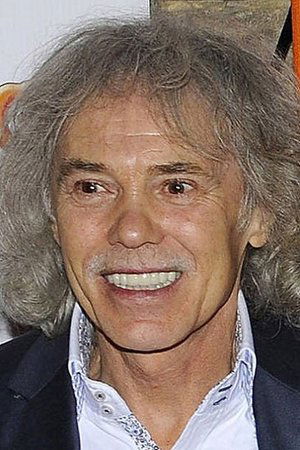Alan Lancaster (1949-2021)
Alias:
Status Quo
Birthplace:
Peckham, London, England, UK
Born:
February 7, 1949
Died:
September 26, 2021
Alan Charles Lancaster (7 February 1949 – 26 September 2021) was an English musician, best known as a founding member and bassist of the rock band Status Quo, playing with the band from 1967 to 1985, with brief reunions in 2013 and 2014. As well as contributing to songwriting, he was also one of the lead vocalists on albums and live concerts, taking the lead on tracks such as "Backwater", "Is There a Better Way", "Bye Bye Johnny", "High Flyer" and "Roadhouse Blues". Alan Lancaster formed the group in 1962 with his then-schoolmate Francis Rossi. His final performance as a full-time member of Status Quo was at Wembley Stadium on 13 July 1985 for the opening of Live Aid. In March 2013, he collaborated with his old bandmates for a series of "Frantic Four" concerts in the UK. While attending Sedgehill Comprehensive School in 1962, Lancaster befriended future Status Quo singer and guitarist Francis Rossi while playing in the school orchestra. With classmates Alan Key (drums) and Jess Jaworski (keyboards), the pair formed a band called The Scorpions, who played their first gig at the Samuel Jones Sports Club in Dulwich. At another gig at the sports club, manager Pat Barlow approached the band, and Lancaster's mother agreed to let him manage the band. Key was replaced by Air Cadets drummer and future Quo member John Coghlan, and the band was renamed The Spectres. "We were novices," noted Lancaster. "None of us could play a note but we were good together." The Spectres wrote their own material and played live shows, and in 1965 played at Butlin's Minehead. There they met future Quo guitarist Rick Parfitt, who was playing as part of a cabaret act called "The Highlights". The band became close friends with Parfitt, and they agreed to continue working together. In 1966, The Spectres signed a five-year deal with Piccadilly Records, releasing three singles that failed to chart. The group again changed their name, this time to "Traffic Jam", after embracing psychedelia. Following Live Aid, Lancaster's relationship with Francis Rossi became increasingly strained when Rossi and Rick Parfitt covertly began recording a new album under the name of "Status Quo". Unbeknownst to Lancaster – by now living in Australia – and the group's then recording company, Lancaster was substituted by session musician John 'Rhino' Edwards, who had been recording on a solo project of Parfitt's – Recorded Delivery – which was eventually scrapped. Edwards remains Quo's bassist to this day. In 1987 Lancaster joined a new line-up of the Australian band The Party Boys and co-produced their self-titled album, achieving platinum sales. The single "He's Gonna Step on You Again" was number one in the Australian charts for two weeks. In 1988, he formed The Bombers, which signed to A&M Records. It was paid the largest advance ever paid to an Australian-based band, but after the band had completed one album, A&M was sold to Phonogram. ... Source: Article "Alan Lancaster" from Wikipedia in English, licensed under CC-BY-SA 3.0.





